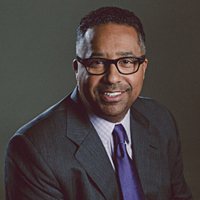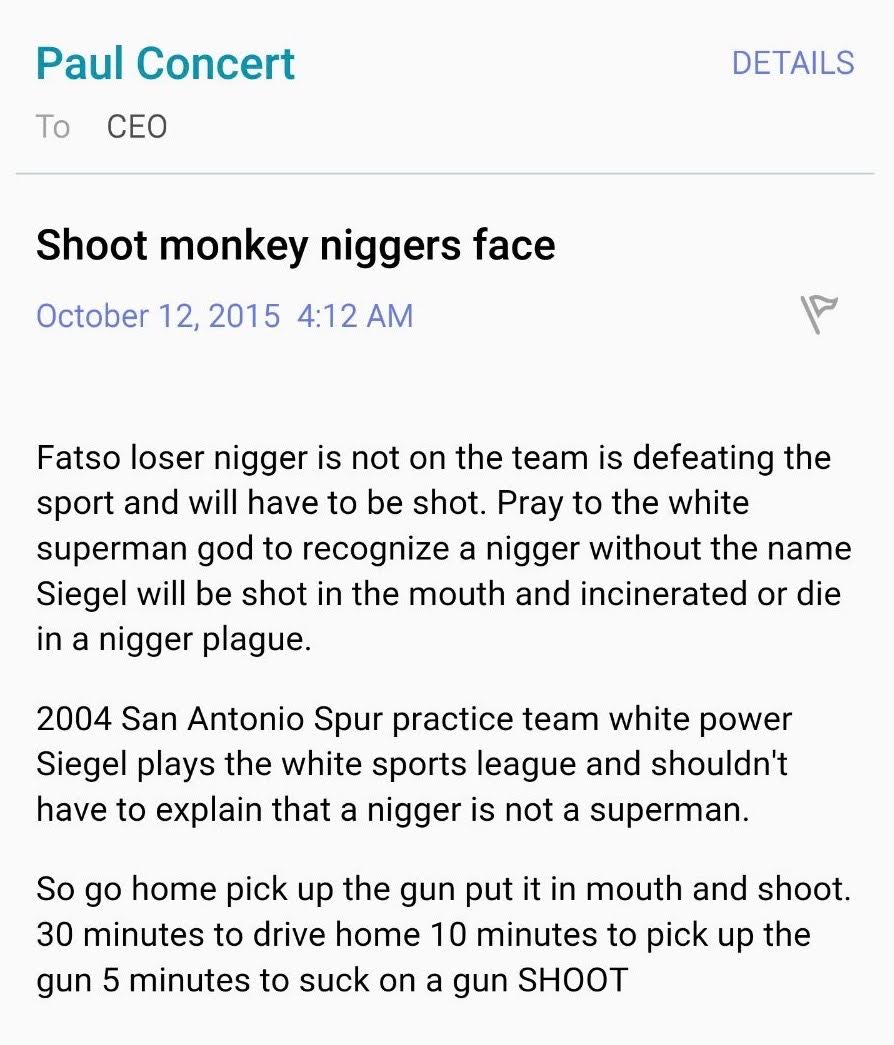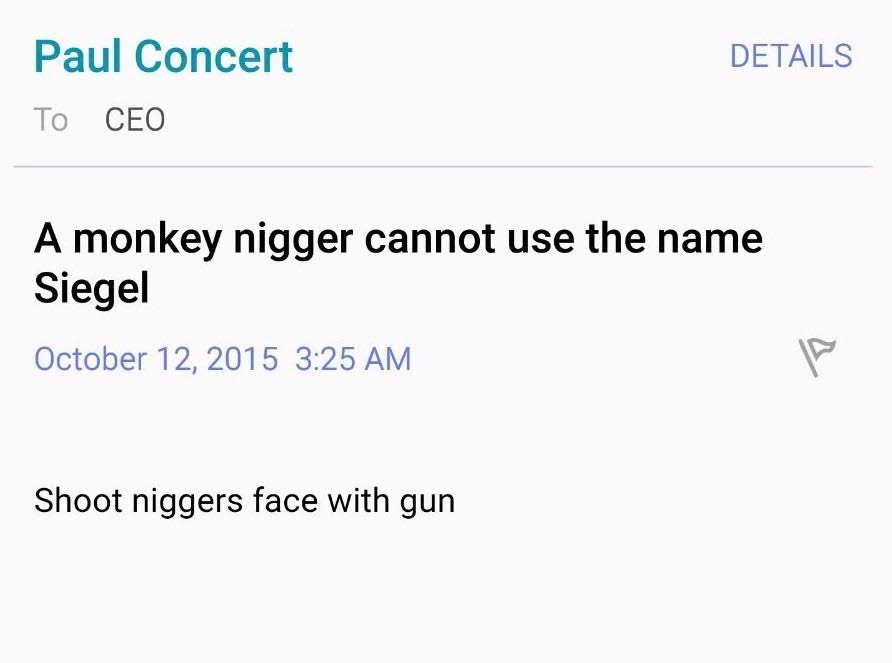Sport, as the International Olympic Committee president Thomas Bach likes to put it, is supposed to be all about building bridges, not walls. That is the theory. Real life can be considerably different. Sometimes, it’s still ugly, indeed — a signal, despite the fact a black man has twice been elected president of the United States, of how far we still have to go, and how difficult it can still be in our increasingly technology-dependent world to track those who would traffic in breathtakingly hateful invective.
Max Siegel is the African-American chief executive of USA Track & Field. He and Renee Washington, USATF’s chief operating officer, who is also African-American, are among the very few senior executives of color in the entire U.S. Olympic scene — a list that also includes Ron Galimore, chief operating officer at USA Gymnastics, and D.A. Abrams, chief diversity & inclusion officer at the U.S. Tennis Assn.
Siegel has been on the job for nearly four years.
In that time, USATF has recorded any number of significant accomplishments:
Just some: revenues have skyrocketed; a deal announced in recent months paves the way for members of the national team to make real money at being track and field athletes; and at the 2015 elections of the International Assn. of Athletics Federations, track's world governing body, USATF secured far more influence, including the election of Stephanie Hightower — also an African-American — to the ruling IAAF council.
In addition, at last month’s world indoor championships in Portland, Oregon, the U.S. team dominated, with 23 medals. Runner-up Ethiopia took five.
USATF helped stage not just those 2016 Portland world indoors but, as well, the 2014 IAAF world juniors in Eugene, Oregon. The 2021 world championships are set for Eugene, the first time the IAAF outdoor worlds will ever be in the United States.
In sum:
For years, it was the case in American Olympic circles that there were two superbly run national governing bodies, swimming and skiing, with gymnastics also deserving significant credit. In large measure, important numbers of the others arguably suffered from various degrees of dysfunction, with USATF perhaps the most dysfunctional.
Now USATF is doing big stuff, and poised to do even bigger and better.
Last October, Siegel opened his USATF email to see not just one but two reprehensible emails laced with threats and hate-filled invective, including the repeated use of the n-word.
Other racially charged emails went out that very same day to a range of USATF staff, black and white. Some included just a subject line. Some included more.
The sender seemed to know, meantime, which USATF staffers were — or might be — black, and which white.
“Paul Concert” and “paulgconcert@gmail.com,” the "sender" names, appear to be aliases.
An email that went to a black employee held the subject line, “All white team champions.”
To a white staffer: “Support white community programs.”
To a black staffer: “Nigger not a Youth.”
To another black staffer: “Niggers off the team.”
To yet another black staffer, two emails. One: “Fat slow loser nigger fired faggot.” The other: “All athletes must shower daily to be on the team.”
To two different white staffers, emails with subject lines and more.
On one, the subject line said, “Integration separates girls from boys.” The body: “Men from monkey niggers.”
On the other email, the subject line read, “Niggers can’t have money.” The body:
“Niggers can’t have showers
“Niggers can’t have electricity
“Niggers can’t have houses cars nor TV
“Niggers can’t have school
“Niggers can’t have buses
“Niggers can’t have churches
“Niggers can’t have sports”
Then an open line, and:
“2020 29 million monkey niggers dead in plague.”
Upon receiving this barrage of messages, USATF immediately launched an investigation and notified local law enforcement authorities in Indianapolis, where the federation is based.
"When you are called to an assignment, not all people agree with your vision or who you are," Siegel said. "As long as your motive is pure and you stay focused on the outcome, you can endure the difficult times. We will take the high road and not stoop to the ignorance of those who have hate-filled hearts."
“The whole episode was very disconcerting,” Washington said. “It is discouraging in today’s world that Max would receive an email that not only talks about his race, questions his last name and threatens to shoot him — or suggests he be shot.
“Really, for me,” she added, “the final straw was when it started going to our employees. And it started targeting employees.”
In the months since, the existence of the emails has been something of a closely held secret in certain track and Olympic circles. Even so, at the USATF annual meeting in December, though enhanced security for all USATF matters was in the air, there was no open discussion of the emails. Partly, this was owing to Siegel’s style; he tends to deflect public attention, good or otherwise. In addition, it was thought that staying quieter longer would give the investigation the advantage of time.
It’s now nearly six months since the emails arrived.
There have been no arrests. None appear imminent.
“We investigated initially,” Captain Rick Riddle, the Indianapolis Metropolitan Police Department spokesman, said in a recent telephone interview, “and we did not develop any definitive subjects.
“As with any case, if suspect information is determined or even found by our victims or their organization, that information is passed through our detectives. We certainly can reopen cases and follow back up.”
At first, it was thought the emails might have been sent from servers in Oregon and California. A few days ago, the possibility emerged they might have been sent from Texas.
Should more leads develop, an arrest could lead to hate-crime charges, perhaps in federal court.
In January, Lloyd Crowe joined USATF as chief security officer. He had recently retired from the Indianapolis police department after 30 years, reaching the rank of assistant chief.
Crowe has a lot to look after in the next few months, including a range of potential security issues at the U.S. Olympic Trials in Eugene and then working with others connected to the U.S. team on security matters at the Rio 2016 Olympics.
Even so — these emails, so troubling, stand out as a priority.
“It’s unfortunate this has occurred,” Crowe said, adding a moment later, “If someone were making a direct specific threat … that would be worse. But this is still bad.”



